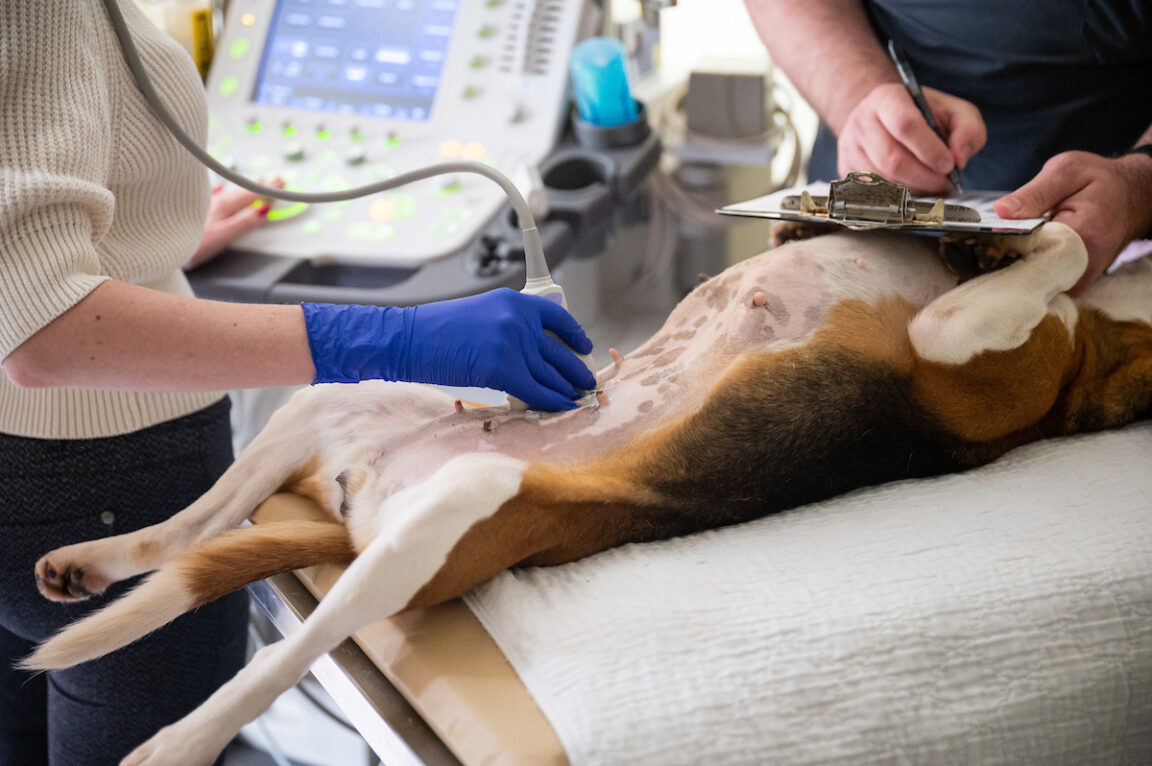Dog Owners: You Can Help Advance NC State Research On Detecting Cancers, Identifying Environmental Causes

NC State College of Veterinary Medicine researchers who developed a method for detecting canine bladder and prostate cancer in urine are recruiting dogs as part of a nationwide study that could lead to diagnostic breakthroughs and novel treatments for dogs and humans.
Potentially, if geographic pockets of canine cancer cases are detected, the research also could be used to predict new cases of the same types of cancers in humans.
“If a dog is exposed to cancer-causing agents in the home, so is the owner,” says Dr. Matthew Breen, professor of genomics and the Oscar J. Fletcher Distinguished Professor of Comparative Oncology Genetics at NC State. “One of our goals is to identify changes in health status for our dogs, investigate what may be causing these changes and then explore options to mitigate them before there is an adverse impact on the human population.”
In one ongoing study, the researchers have been working with thousands of dog owners to collect urine samples from clinically healthy dogs, aged 6 years or older, from one of the seven breeds that are at increased risk of developing bladder or prostate cancer: American Eskimo, beagle, Parson Russell terrier, Russell terrier, Scottish terrier, Shetland sheepdog and West Highland white terrier.
“By focusing on this subset of the canine population, we increase the likelihood of identifying dogs that will develop bladder or prostate cancer in the future,” Breen says. “We monitor these dogs regularly for early signs of disease, which is important as this cancer is typically diagnosed in its later stages.”
In a second study, the team is recruiting dogs of any age and breed that have a recent or suspected diagnosis of bladder or prostate cancer and that have not yet received any chemotherapy. These dogs will help the research team explore new innovations for treating the disease.
Dog owners who are interested in participating in these studies, at no cost, can fill out an online form here. Once an owner has collected a urine sample from a dog, it is returned to NC State for biomarker testing, using prepaid shipping supplies.
In the first study, Breen’s team is working closely with human oncologists to pinpoint potential patterns in the data across species.
By screening a geographically diverse group of dogs for bladder and prostate cancers, the study also could help predict areas where cancer clusters may arise in people.
“The lifespan of a dog is about seven times less than a human,” Breen says, “which means that if an environmental exposure causes a health impact on a dog in two to three years, this could indicate that humans in the shared same environment could, in time, have the same adverse outcome.”
He cites the experience of a veterinarian in Oklahoma who had seen only a few canine thyroid carcinomas cases in over 30 years of practice but now has seen almost 30 cases since November 2022. Notably, there is concern that people in the area may also be diagnosed with the same cancer, Breen says.
“A major cause of thyroid problems is chemicals in water,” Breen says. “There are massive amounts of chemicals in this area of Oklahoma, which is coincidentally close to Tinker Air Force Base, a designated superfund site.”
If the NC State study suggests similar geographic patterns for canine bladder and prostate cancers, researchers could identify possible causes sooner and intervene, potentially saving dog and human lives, Breen says.
“As family members, our dogs live in our home, they drink the same water, breathe the same air and even sleep on our beds,” Breen says. “For this reason our household dogs are probably the best indicators of the possible adverse health impacts of our daily domestic exposures.”
For more information about becoming involved with these studies, please click here
- Categories:


